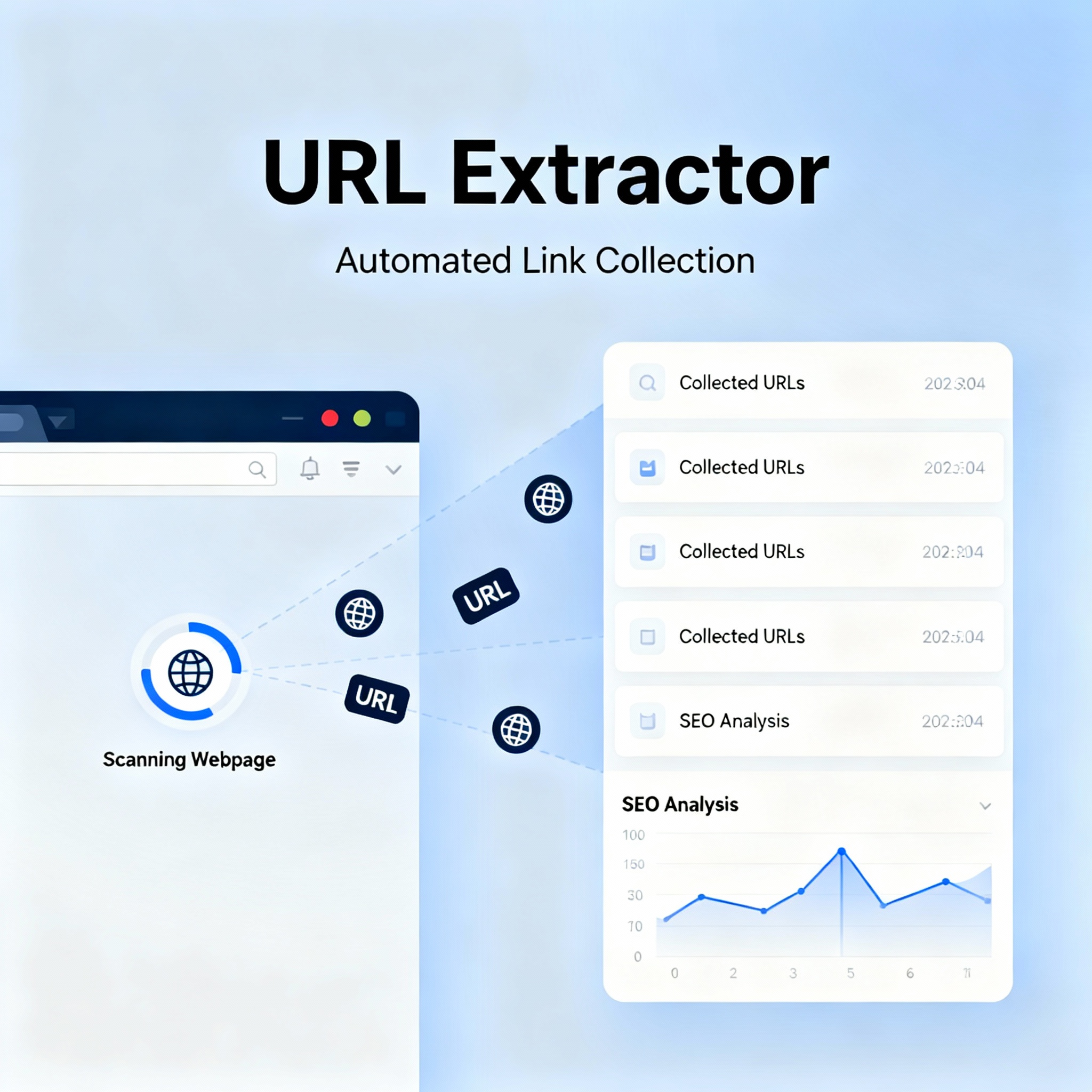
URL extractor
Created on 18 October, 2025 • Text tools • 80 views • 2 minutes read
A URL extractor is a specialized tool designed to automatically scan documents, web pages, or datasets
URL Extractor: Fast and Accurate Link Collection for SEO and Web Analysis
What Is a URL Extractor?
A URL extractor is a specialized tool designed to automatically scan documents, web pages, or datasets and collect all embedded hyperlinks (URLs) found within the content. Whether for SEO analysis, digital marketing, research, or web development, URL extractors save hours of manual effort by delivering organized lists of links for ongoing audits, campaigns, and analytics.
How Does a URL Extractor Work?
URL extractors use pattern recognition or regular expressions to identify link formats such as:
- http:// or https:// web addresses
- FTP or file download links
- Email or phone anchor tags The extracted URLs can be grouped, sorted, and exported for further use in spreadsheets, databases, or automated scripts.
Why Use a URL Extractor?
SEO and Website Auditing
SEO specialists use URL extractors to assess website structure, discover broken links, identify outbound and inbound link patterns, and map pages for crawling or optimization. By automating the retrieval of all URLs from a site or sitemap, analysts can quickly prioritize fixes and enhancements to improve search rankings.
Content and Competitive Analysis
URL extractors help marketers monitor competitors by collecting all outbound and internal links from published articles, press releases, and blog posts. This data is invaluable for tracking partnership networks, topic authority, and backlink opportunities.
Data Collection and Research
Researchers gather sources for academic studies, citation analysis, and large-scale information mapping. Automated extraction of URLs accelerates literature reviews and content validation for robust, data-driven findings.
Key Features of Modern URL Extractor Tools
- Bulk extraction: Process entire websites, doc folders, or email inboxes at once
- Filtering and categorization: Sort URLs by domain, link type, or status (active/broken)
- Export options: Download results in CSV, TXT, or Excel for integration with other analysis tools
- API and automation: Integrate extraction into workflows for scheduled link audits or reporting
Popular tools include Screaming Frog SEO Spider, Xenu’s Link Sleuth, LinkMiner, Regex-based extractors, and browser extensions for Chrome and Firefox.
SEO and Security Impact
Identifying Risks and Opportunities
Regular URL extraction lets teams track link changes, spot malicious or spammy sites, and clean up outdated links. Proactive management prevents SEO penalties and ensures only reputable domains are referenced for maximized trust and authority.
Streamlining Link Building
With organized URL lists, marketers can target high-value contacts, monitor outreach campaigns, and measure the effectiveness of current backlink strategies.
Best Practices
- Run scheduled link extractions to keep site maps updated
- Check results for duplicates, broken links, or irrelevant domains
- Use extraction data to refine SEO strategies and generate targeted outreach lists
Conclusion
A URL extractor empowers digital professionals to automate link collection, streamline analysis, and elevate SEO performance. With the right tool, you can optimize website structure, uncover new marketing opportunities, and maintain a healthy and authoritative web presence.
Popular posts
-
GIF to BMPImage Manipulation tools • 583 views
-
GIF to WEBPImage Manipulation tools • 462 views
-
GIF-to-PNGImage Manipulation tools • 363 views
-
SHA-3/512 generatorConverter tools • 292 views
-
GIF to JPGImage Manipulation tools • 257 views